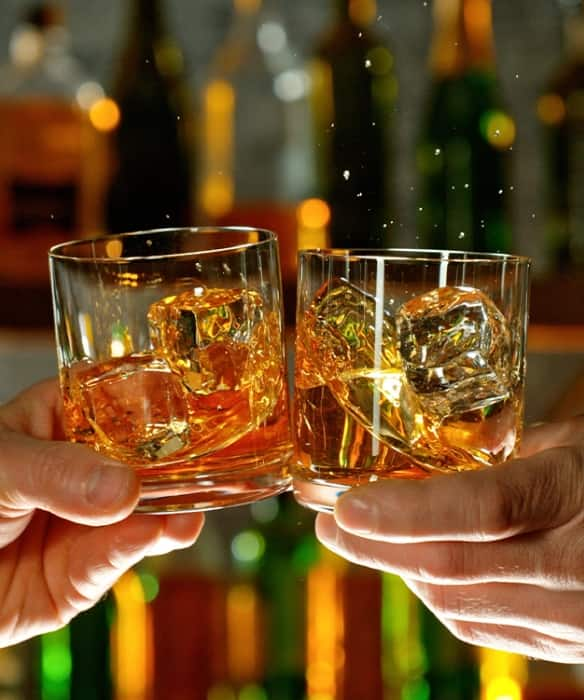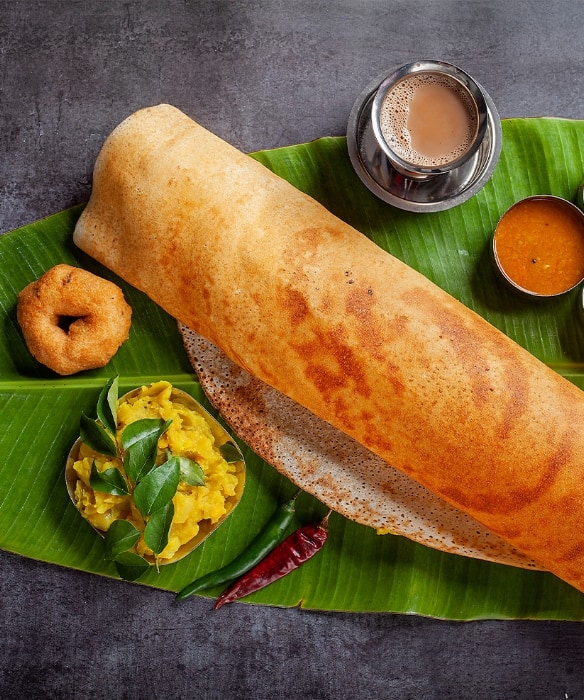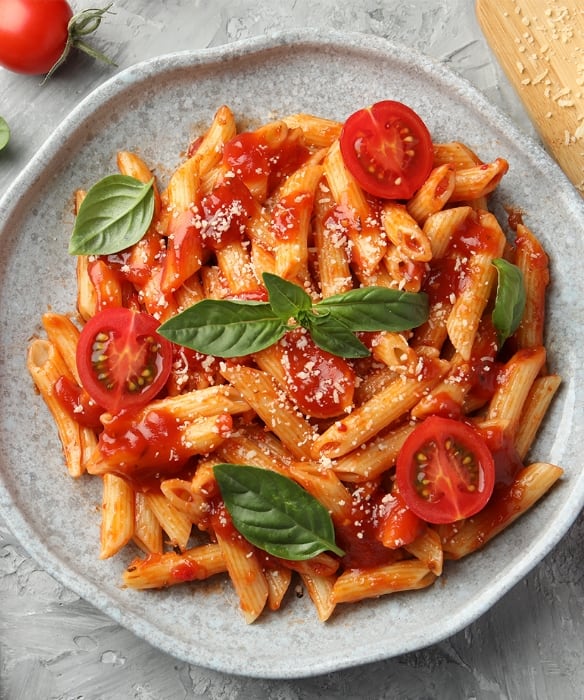Stay logged in to proceed with bookings, orders and offers.
On changing the terminal, you will loose items in your cart. Are you sure you want to change your terminal?
Sipping refreshing Bhutanese drinks, from teas to wines infused with unique ingredients.
I wanted my culinary journey in Bhutan to extend beyond the plates of momos and steaming bowls of thukpa, and instead, include Bhutanese drinks like Suja and Ara. Guess what, Bhutan exceeded my expectations! The sight of meticulously presented glasses and cups brimming with its well-known butter tea and local brews left me astounded. With every sip, a new facet of Bhutanese culinary heritage was unveiled—from the delicate floral undertones of Bhutanese herbal teas to the invigorating spark of traditional fermented concoctions. Embracing this kaleidoscope of flavours allowed me to fully submerge myself in the rich tapestry of Bhutanese beverage traditions.
On the first day of my trip, we headed to Thimphu from Phuentsholing. As we drove on the winding roads, my driver stopped at a small cafe for lunch. The menu had only a few items on it. But I did spot a mention of Suja! As I entered the inviting cafe nestled on the mountainside, the scent of freshly brewed tea intertwined with the breathtaking panorama of the Himalayas. My anticipation grew as I awaited the chance to sample Suja, a tea that is brewed with water, tea leaves, churned butter, and Himalayan salt. With fluttering prayer flags adorning the landscape and verdant scenery enveloping me, I relished the subtle notes of the tea that was accompanied by a serving of rice, and potato and beans curry. Seated by the window, I savoured this quintessential Bhutanese beverage, and felt gratified to have checked it off my bucket list. My journey was off to an exceptional start!
The following evening, I ventured to Thimphu Clock Tower Square, illuminated by a night market and gambling stalls. Embracing the vibrant ambience, I decided to indulge my palate with a local beer at Thija Cafe. Opting for a chilled Druk Supreme Beer, I paired it with an Ema Datshi Burger. The cafe buzzed with life, resonating with local melodies and an infectious party spirit. On this particular evening, I encountered a distinct facet of Bhutan, which contrasted with its usual serenity. As I poured the golden liquid into a beer mug and took a sip, I was pleasantly surprised by its unique character, even for someone who isn't typically keen on beer. Bhutan Brewery's 5% lager exhibited a mild profile accented by a subtle note of sweet corn, harmonising seamlessly with the spiciness of my burger. The evening turned into a lively solo celebration before I called it a night.
While exploring the Folk Heritage Museum, I marvelled at the local weaving, the making of Zaow (rice puffs), and the method of drying chillies. Amidst this immersive experience, my guide, Tek, introduced me to a centuries-old Bhutanese artifact known as Palang. Crafted in a cylindrical form from either wood, horn, or bamboo, it is adorned with strips of brass or other metals. This age-old traditional flask is used to store Ara—the local alcoholic drink, commonly prepared at home by women, is a huge part of the country's cultural heritage. Ara is distinctive as it is distilled using any available millet; maize is the foremost choice. Rice, wheat, barley, and sometimes, apples and potatoes are also used. Tek poured half a glass for me, and as soon as I took a sip, the strong and woody aroma instantly engaged my senses. The taste was stronger than the smell, and I could make out that it was fermented from rice. I finished the drink with some freshly roasted Zaow. Bhutan was starting to grow on me.
My adventure continued smoothly, allowing me to progressively check off items from my list. I nibbled on Yak Cheese, sampled Ezay (spicy chili sauce), and treated myself to a delectable bowl of Puta (buckwheat noodles). During my final day in Paro, I came across another local wine. After accomplishing the strenuous yet stupefying Paro Taktsang trek, I decided to celebrate the night with a hearty dinner, and invited Tek and Chokhi, my newfound Bhutanese friends. To elevate our dinner party, Choki suggested Zumzin, a peach wine that promised a natural blend of flavours. Derived from organic peaches that is cultivated in the northern highlands of Bhutan, Zumzin captured my heart with its fruity aroma, sweet flavour, subtle green hue, and lingering aftertaste. If anyone asked me to choose one beverage from the country, Zumzin would undoubtedly be my choice. It's a shame that I only discovered it on the last day of my trip.
I've often been told how easy it is to import food items, explore diverse cuisines at restaurants, or even whip up meals at home. However, I've consistently found such suggestions inaccurate. For a devoted gastronome and an experiental traveller like myself, genuine understanding of food necessitates the context from which it originates. For instance, the true essence of Suja can only be captured when it carries the essence of Bhutanese air, and the significance of a glass of Ara comes to life when it is poured from a Palang. Such unparalleled experiences remain unattainable within the confines of one's own abode. This is precisely why an itching urge to revisit Bhutan persists within me—to delve further into the realm of local delicacies and, naturally, to secure another bottle of Zumzin.
Also Read -
Top 10 Beer Brands in India with Price, Volume and Alcohol Percentage
Top 10 Whisky Brands in India with Price, Volume and Alcohol Percentage
Blue Label Price in Mumbai - 750ml, 1 Litre, 180ml, 375ml
Black Label Price in Mumbai - 50ml, 750ml, 1 Litre
Reb Label Price in Mumbai – 50ml, 200ml, 375ml, 750ml, 1 Litre
100 Pipers Price in India – 750ml, 1 Litre
Breezer Alcohol Percentage, Price (275ml), Flavours, Myths in India
Absolut Vodka Price in India - Delhi, Mumbai, Bangalore, Hyderabad, Goa, Gurgaon
Blenders Pride Price in India - Bangalore, Delhi, Kolkata, Mumbai, Rajasthan
Ballentine Whisky Price in India - Delhi, Bangalore, Kolkata, Chennai, Pune, Hyderabad, Mumbai





The Adani One expressly disclaims all liability, direct and indirect, in respect to actions taken or not taken based on any or all the contents of this Blog. The Blog is an opinion of the contributor based on the collation of data from various sources and is provided only for information purpose. Adani One does not canvass, advertise, solicit, invite or induct for any product, merchandise, information, brand or any other materials mentioned in the Blog, nor does it obtain any monetary benefit from the same. Reader is advised to read and apply his/her intellect and discretion in this regard. Any Intellectual Property mentioned in this blog belongs to the rightful owner. We do not intent to claim any interest over the same.